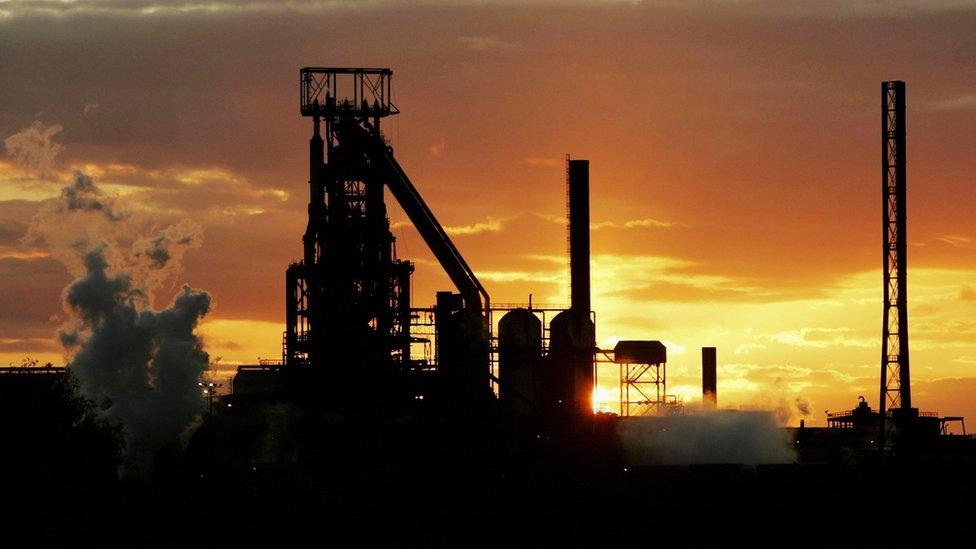Steel crisis - the role of government
- Published

It's early days but there appear to be two kinds of government intervention being spoken about in response to the problems facing the steel industry.
Much of the talk so far has been about trying to keep the lights on at Port Talbot, and other plants, by appealing to Tata to give enough time to find a potential buyer.
Then there's the option favoured by Labour, Plaid and union leaders for the state to consider a more permanent level of support.
All eyes will be on Westminster to begin with. There is a willingness to consider action. The business minister Anna Soubry made it clear on the BBC that the government was prepared to intervene in the short term to save the business.
The new Welsh Secretary Alun Cairns has given little away other than to say all viable options are being considered.
Scottish Government
It seems inevitable that the assembly will be recalled to discuss the crisis for the industry a matter of weeks before the election.
The key question is whether the Welsh Government can do something other than providing the usual level of support for regeneration and training for workers who have lost their jobs.
The Scottish Government recently bought two moth-balled steel plants in Lanarkshire from Tata before selling them to a private company on the same day.
The First Minister Carwyn Jones has said he'd consider something like that but admits there are major differences in the scale.
The buy-out in Scotland will secure around 200 jobs. We are now talking about thousands, and the future of the biggest steel plant in Britain.
Eye-watering
The scale of the losses is eye-watering. Late last year, sources at the company told me it was around £1m a day.
Changes to the exchange rate have recently improved conditions but nevertheless it has reached a point where Tata can't see a way through.
The developments will clearly play a major part in the assembly campaign.
How can any discussion on economic development, for example, not be dominated by a potential scale of job losses not seen in heavy industry in decades?
And there's also the impact on the EU referendum campaign.
Despite complaints from the industry about energy costs and even business rates compared to other parts of Europe, the biggest problem for plants like Port Talbot is cheap Chinese imports flooding the market.
Both the leave and remain camps take opposing views on whether the UK or the EU is the more effective organisation to tackle the problem.